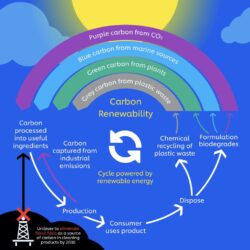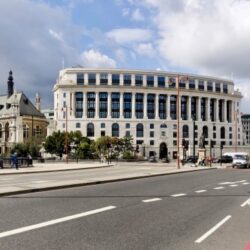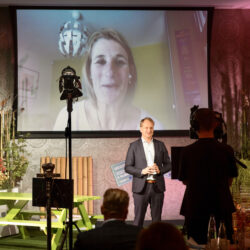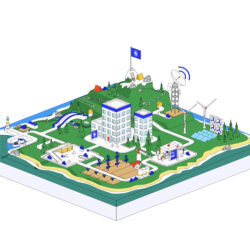Unilever to eliminate fossil fuels from its products

Unilever is to stop using fossil fuels in its laundry and cleaning products. By 2030, the British/Dutch multinational intends to use only renewable and recycled carbon sourced from plants, air, marine sources or waste materials. To this end, Unilever is investing €1 billion in the Clean Future programme, in order to contribute to global research, development and innovation related to the circular economy and its product formulations. The manufacturer has also called on other companies to switch to this new ‘Carbon Rainbow’ method.
Unilever produces some of the world’s best-known detergents and cleaning products, including Glorix, Omo and Ruby. With the Clean Future programme, the company wants to fundamentally change the way these products are developed, produced and packaged. Usually the detergents and cleaning products contain chemicals made from fossil fuels: a non-renewable source of carbon. Unilever now wants to put an end to that, and expects its suppliers to make the necessary changes.
Radical overhaul
“Clean Future is our vision to radically overhaul our business,” explains Peter ter Kulve, President of Unilever Home Care. “As an industry, we must break our dependence on fossil fuels, including as a raw material for our products. We must stop pumping carbon from under the ground when there is ample carbon on and above the ground if we can learn to utilize it at scale.”
Unilever is putting aside €1 billion for the Clean Future programme. The investment is aimed at creating affordable cleaning and laundry detergents that deliver excellent results but have significantly less impact on the environment. The programme already supports leading projects around the world – projects aimed at adapting the way the chemicals in Unilever’s detergents and cleaning products are made.
More affordable and more sustainable products
“We hear time and time again that people want more affordable and more sustainable products that are just as good as conventional ones,” says Ter Kulve. “Diversifying sources of carbon is essential to grow within the limits of our planet. Our suppliers and innovation partners play a critical role through this transition. By sharing our Carbon Rainbow model, we are calling on an economy-wide transformation in how we all use carbon.”










